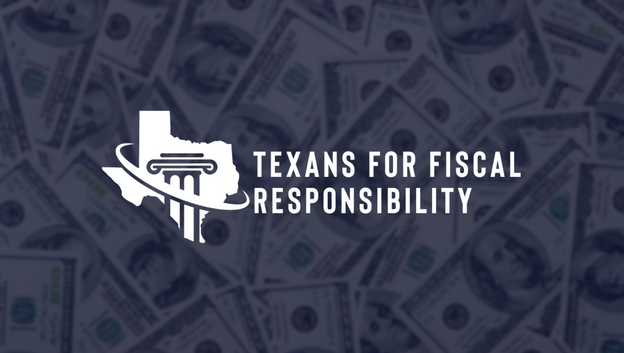
What is Festivus?
Finding its origins in the hit ’90s sitcom Seinfeld from an episode entitled “The Strike”, the character George Costanza’s family celebrates a holiday called Festivus as an alternative to Christmas, and a tongue-in-cheek protest to the commercialism surrounding the holidays, taking place on December 23rd of every year.
“At the Festivus dinner, you gather your family around and tell them all the ways they have disappointed you over the past year.” – Frank Costanza (Seinfeld)
The celebration begins with the tradition of the “Airing of Grievances”, followed by a “Feats of Strength” competition, where the head of each household must be pinned in a wrestling match under the infamous Festivus pole (Seen below)

Annual Airing of Grievances
“The tradition of Festivus begins with the airing of grievances. I got a lot of problems with you people, now you’re gonna hear about it!” – Frank Costanza (Seinfeld)
Consider this commentary our official “Airing of Grievances” at the dinner table…

This year, the United States of America surpassed yet another somber debt milestone of over $31 trillion, amounting to over $94,000 per U.S. citizen or $248,000 per U.S. taxpayer. Both major political parties are at fault. The coming days and weeks will be full of political posturing and tribalist rhetoric, but the debt has soared under both Republican and Democrat administrations, with both having the luxury of partisan majorities in the U.S. Congress to address the issue throughout recent decades.
The debt burden is so large that the government would need to spend more money than the entire American economy to pay it off. As the debt grows, so too does the interest accrual, making it even more costly to pay back.
The only real certainty is that there does not appear to be a reprieve on the horizon, and without much-needed spending limits and a political culture that values fiscal responsibility, the burden of increasing debt and runaway spending will only get heavier on taxpayers.
In the words of Latin writer Publilius Syrus, “Debt is the slavery of the free.”

While recent polling continues to show that Texans want property tax relief over any other spending, it is obvious that state lawmakers are starting to feel the heat. Many have already pre-filed legislation ahead of the upcoming 88th Legislative Session with varying approaches to either provide relief or set the state up for the overall elimination of such a tax.
As a part of our Texas Prosperity Plan, we call for the overall elimination of the property tax in Texas. We believe that the concept of property taxes is immoral and unsustainable for a free society. There is a better way to fund local governments and our schools WITHOUT creating any new taxes. Not only are homeowners drowning while trying to keep up with increasing tax burdens, but the taxes will never stop, even after you completely own your home. That means you pay perpetual rent to the government for the right to live on your property.
Texas has levied a property tax since its founding. Currently, Texas “boasts” the sixth-highest property tax burden in the United States.
With a projected budget surplus of over $27 billion, state lawmakers have a historic opportunity to end this immoral tax in the upcoming legislative session.

Perhaps one of the most grotesque practices and use of taxpayer dollars that continues to be permitted in the state of Texas is taxpayer-funded lobbying. It has now become a perennial issue posed to the Texas Legislature and legislation seeking to outright ban the practice has been stifled every time, even though consistent polling shows a huge majority of Texans from each major political persuasion support ending the practice.
Local governments, including jurisdictions like school districts, spend millions of your hard-earned taxpayer dollars to hire corporate lobbyists, who then lobby lawmakers on their behalf to give them even more of your tax dollars. It is a massive conflict of interest, and that interest is almost never in favor of the taxpayer.
This issue also finds itself among the issues included in our Texas Prosperity Plan. In preparation for the upcoming 88th Legislative Session, legislation has already been pre-filed to ban the practice statewide.

Government spending on the federal, state, and local levels collectively continues to stifle future prosperity. With nearly unfathomable amounts of debt and unfunded liabilities related to things like Social Security, Medicare, and other issues, there is seemingly no real appetite by our elected leaders to address the elephant in the room, that the government is spending way more than its ability to pay and that by doing so, in more ways than one, Americans are becoming less independent and more dependent on government programs, which perhaps is the nefarious point.
On the state level, Texas’s government spending is on track to nearly triple since the dawn of the 21st century here in just a few years even though Texas’ population has only increased by 40% in that same time period. This phenomenon likely comes from the result of lawmakers, or appropriators, ultimately starting from the wrong premise on state spending. Fiscal responsibility is not prioritized by the state Legislature. Yes, in recent legislative sessions, they have “slowed the growth” and adopted a new constitutional spending limit based on the growth of both population and inflation, but the government still grows this way.
The local level is virtually no different. Many of Texas’ largest cities continue to increase their own citizens’ debt burdens.
To fix a bloated government, we must cut the size and scope of government down to a size that’s both manageable and reasonable, as the Founders originally intended.

One of the most egregious ways in which local debt continues to become an almost insurmountable burden is that of bond propositions. In the wake of the most recent November general election, it became obvious that fiscal sanity ended up being the biggest loser. According to The Bond Buyer, Texas led the Southwest region of states having the largest amount of debt propositions on the November 8 ballot. Of the $21 billion considered, school bonds accounted for $15 billion of them.
Many taxpayers have taken issue with what is perceived as a deck stacked against them. Taxing entities proposing bonds and tax rate hikes can use taxpayer money to promote them, something that is not afforded to taxpayers themselves, who may instead choose to promote opposition to the same bond or tax rate election.
Many local governments often use confusing language to promote these things as well, saying they are lowering rates while being silent about how the increase in appraisals for various properties in the district will actually result in a tax increase for property owners. This practice is absolutely something the Texas Legislature should rectify before more local governments continue to abuse such things.

Seemingly far-gone are the days in which Republicans cared, or at least purported to care about the severe fiscal issues facing the country and state of Texas.
Recently, Republican U.S. Senator Rand Paul (Kentucky) took to Fox Business to lend his thoughts on the subject as the current $1.7 trillion omnibus spending bill gets deliberated in Congress funding the government for a few more months,
“…41 votes would stop the big spending. If 41 of us said no and held our ground until there was a compromise, we could force Democrats to reduce spending. We have completely and totally abdicated the power of the purse, Republicans are emasculated, they have no power, and they are unwilling to gain that power back…”
Similarly, in a recent interview with Vance Ginn, Ph.D., Texas Republican State Rep. Matt Schaefer (Tyler), who also happens to be a TFR Taxpayer Champion and member of the Texas House Appropriations Committee, said this about his political party and the state legislature,
“When I became somewhat politically aware in the ’90s, Republicans stood for being fiscally conservative. They talked a lot about the federal debt. They talked about spending too much money. And the Republican party has gotten away from that a lot. I think there’s just been a lot of deficit spending over and over again, and maybe people have just become numb to it. But I think that should remain a core Republican tenet, that we should not spend too much money, we should not grow government beyond the ability of our neighbors and our families to pay that government expense, and so on the Appropriations Committee, I think I’m always trying to find ways to… let’s actually talk about limited government, not only how much we spend, but where we spend it, why should we be spending it there at all and to just try to get Republicans to come back to what we used to be on that, to be people who really care about limited government…”
Republicans in Texas have boasted a majority in every statewide office and the state legislature for over two decades now and yet in that time the Texas state budget is on track to triple in size and property tax burdens continue to stifle future prosperity for Texans. On the federal level, Republicans have controlled Congress several times and yet deficit spending and the debt continue to grow, at alarming rates.

The Texas Legislature ended the largest corporate welfare program in Texas, the Chapter 313 tax abatement program, in the last legislative session, seemingly reluctantly. Set to end on December 31st of this year, this reality has not stopped many Republican elected leaders in the state from supporting the idea of bringing it back, in spite of their own political party’s platform explicitly calling for them not to and studies showing that ultimately the programs are ineffective.
It is fairly simple. If lawmakers instead focused their efforts on creating an environment by which businesses would thrive here on their own, free of government regulation and interference, it would act as its own incentive program, free from taxpayer subsidization, and nefarious actors using such monies to enrich companies that many times do not also promote the same values.

If you have gone to the grocery store anytime in the last year or so, it is obvious, the purchasing power of the dollar has decreased and the cost of merely existing has increased. This issue ultimately stems from the ridiculous existence of things like the federal reserve and government spending run amok by both Democrat and Republican-led administrations.
The government needs to get out of the way. Regulation slows production and economic growth. Yet seemingly, the worse things get the harder the government seems to want to clamp down, focusing more on environmental and ‘woke’ extremism rather than helping everyday Americans that are barely making it day to day.
What’s Next?
Now, on to the feats of strength!
In all seriousness, Merry Christmas and Happy New Year from all of us here at Texans for Fiscal Responsibility!




